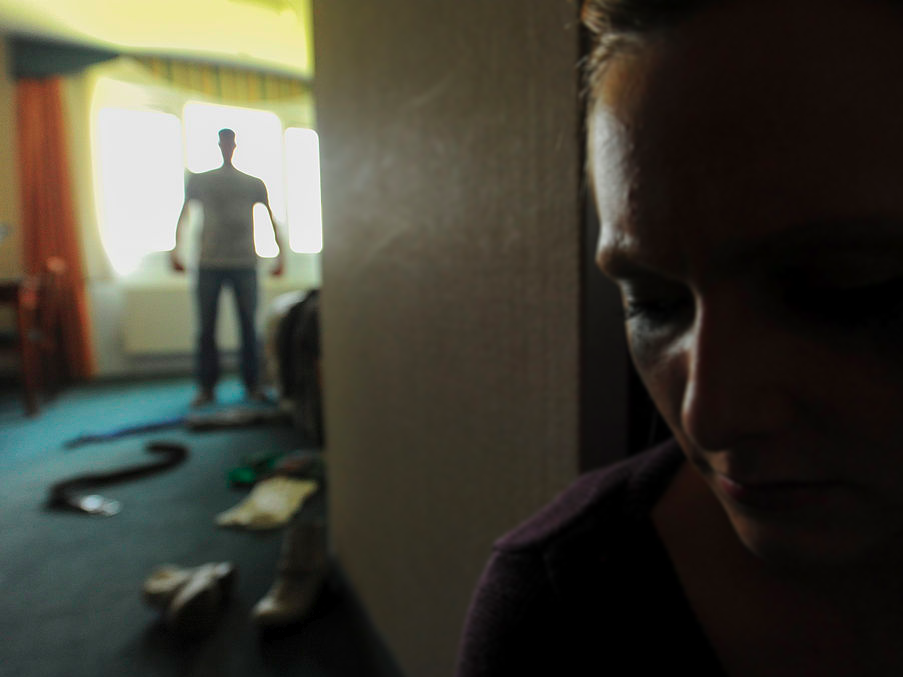 During and after divorce, if one spouse is determined to need financial support from the other to maintain a lifestyle close to what the couple enjoyed together while married, they may be granted alimony, also known as spousal support.
During and after divorce, if one spouse is determined to need financial support from the other to maintain a lifestyle close to what the couple enjoyed together while married, they may be granted alimony, also known as spousal support.
New Jersey defines five types of alimony: pendente lite (temporary) alimony, limited duration alimony, open durational alimony, rehabilitative alimony, and reimbursement alimony. The methods of determining the amount and duration of alimony awards are dependent upon many factors, including needs, marriage duration, spousal age and health, spousal income and earning capacity, standard of living, and parental responsibility. With rather significant changes having been made to the alimony laws in the past several years, it is important for individuals in divorce or post-divorce to understand the impact these changes may have on them.
Drisgula & Thatcher have nearly 30 years of combined experience navigating New Jersey’s complex alimony laws, advocating for and against the award of alimony to enable their clients to best move forward with their lives.

If you are not satisfied with a family law-related court decision, you may have options to appeal your case within the New Jersey appellate system.
The attorneys at Drisgula & Thatcher are experienced in all aspects of family law, and can help you determine if you have grounds for appeal following a court decision. We can help you file necessary paperwork, notify applicable parties, and work within the New Jersey appellate system to advocate for your rights and redress erroneous trial court decisions.
Please note that New Jersey strictly limits the time frame you have to file an appeal, so please do not hesitate in contacting an attorney as soon as possible if you are considering appellate action.
 The child custody process is often the most stressful and emotional aspect of the divorce process, on the children and the parents. The attorneys at Drisgula & Thatcher recognize the sensitive nature of the child custody process, and are experienced at helping families navigate the legal, procedural, and emotional paths toward rebuilding their lives after divorce.
The child custody process is often the most stressful and emotional aspect of the divorce process, on the children and the parents. The attorneys at Drisgula & Thatcher recognize the sensitive nature of the child custody process, and are experienced at helping families navigate the legal, procedural, and emotional paths toward rebuilding their lives after divorce.
In child custody cases, New Jersey considers the best interests of the children related to two forms of custody: 1. Physical Custody – the amount of time the children may physically spend with each parent, and 2. Legal Custody – the parents’ rights regarding decisions made about their children’s health, general welfare, and education.
Because New Jersey law does not favor particular child custody arrangements, it is imperative to map out a strategy that takes into account the best interests of the children. This strategy is dependent on a number of factors, such as age of the children, concerns about physical health and safety, emotional needs, communications skills between all parties, ability to co-parent, history of domestic violence, and other practical considerations.
The attorneys at Drisgula & Thatcher have years of experience helping families develop child custody strategies in order to minimize the stress placed upon parents and children during divorce proceedings. We will take care to ensure that your children’s needs are being met, while protecting your individual legal rights as afforded by the State of New Jersey.
 When divorce involves families with children, it is mandated that both parents support their children financially. In New Jersey, child support follows the “Income Shares Model,” meaning that a total support amount of the children is computed, and then split proportionately between the parents according to their employment earnings.
When divorce involves families with children, it is mandated that both parents support their children financially. In New Jersey, child support follows the “Income Shares Model,” meaning that a total support amount of the children is computed, and then split proportionately between the parents according to their employment earnings.
Although courts have constructed specific child support guidelines in order to maintain objectivity, the process of computing child support, as well as addressing responsibility for other child-related expenses that may not be covered by child support, can still be a complex and often emotional undertaking. The attorneys at Drisgula & Thatcher have years of experience helping families wade through the various aspects of divorce proceedings when children are involved, offering comforting assistance as well as strong guidance through the legal process.
Throughout the process, you can be assured that your legal rights are maintained, ensuring that the expenses related to your children are properly addressed in a manner consistent with what is required under New Jersey law.
 Couples seeking a cooperative, less contentious approach to their divorce can opt for collaborative divorce. In this process, which is often quicker and less expensive than traditional divorce litigation, the parties work in a team environment with lawyers, counselors, specialists, and other professionals in order to come to agreement on the terms of their divorce.
Couples seeking a cooperative, less contentious approach to their divorce can opt for collaborative divorce. In this process, which is often quicker and less expensive than traditional divorce litigation, the parties work in a team environment with lawyers, counselors, specialists, and other professionals in order to come to agreement on the terms of their divorce.
When compared with traditional litigation, collaborative divorce is generally less stressful on the parents and their children. Because all parties agree beforehand to resolve the divorce and related issues in a constructive atmosphere, the collaborative divorce process is driven by themes of good faith and fairness in order to agree upon divorce conditions. As with traditional litigation, collaborative divorce addresses all aspects of a divorce, including child support and custody, asset distribution, alimony, etc.
A form of alternative dispute resolution, collaborative divorce is a process that focuses on cooperative rather than adversarial strategies. The spouses are represented by their lawyers, who guide their clients towards the best possible settlement for the family while still providing sound legal advice to the client in interest-based negotiations.
 Divorce is, at best, extremely stressful, emotionally-charged, and frustratingly complex. In addition to the process of physically and mentally separating from your spouse, you will be asked to make a series of difficult decisions that will impact your family structure, your way of life, and your financial well-being. If you have children, you will also need to continue to care for their needs while determining ways to ensure healthy relationships between them, you, and your spouse going forward.
Divorce is, at best, extremely stressful, emotionally-charged, and frustratingly complex. In addition to the process of physically and mentally separating from your spouse, you will be asked to make a series of difficult decisions that will impact your family structure, your way of life, and your financial well-being. If you have children, you will also need to continue to care for their needs while determining ways to ensure healthy relationships between them, you, and your spouse going forward.
During divorce proceedings, it is of paramount importance to surround yourself with family members and friends who can help support you during this often tumultuous time. Perhaps just as important is choosing a trustworthy attorney who understands your particular situation, understands your goals, and focuses their time and attention in order to protect you and your child(ren)’s best interests. The attorneys at Drisgula & Thatcher are compassionate, qualified professionals with years of experience helping women and men navigate the divorce process quickly and efficiently.
Our attorneys will work with you to map out the steps and strategy necessary to enable you to best accomplish your particular needs in your divorce. We will consult with you in order to fully understand your situation and your goals, as well as assist you in assembling the appropriate documents, securing the necessary information, and developing a plan to best protect your rights and the rights of your children in divorce.
Domestic violence exists in nearly every community in New Jersey, and affects women and men from all economic, social, and cultural backgrounds. In addition, domestic violence is not limited to married couples, and may affect dating couples, former spouses, of any members living in the same household.
 Drisgula & Thatcher is committed to helping women and men who have been victims of domestic abuse to obtain restraining orders against their accused assailants, as well as to protecting those women and men who may have been falsely accused of acts of domestic violence. New Jersey has been at the forefront of enacting legislation and programs that help domestic abuse victims and has developed a body of case law aimed at insuring the rights of those who may be falsely accused of domestic violence. The attorneys at Drisgula & Thatcher are adept at working within the system to protect the safety of family members who may fall victim to domestic abuse or those who have been falsely accused of committing an act of domestic violence.
Drisgula & Thatcher is committed to helping women and men who have been victims of domestic abuse to obtain restraining orders against their accused assailants, as well as to protecting those women and men who may have been falsely accused of acts of domestic violence. New Jersey has been at the forefront of enacting legislation and programs that help domestic abuse victims and has developed a body of case law aimed at insuring the rights of those who may be falsely accused of domestic violence. The attorneys at Drisgula & Thatcher are adept at working within the system to protect the safety of family members who may fall victim to domestic abuse or those who have been falsely accused of committing an act of domestic violence.
The New Jersey Prevention of Domestic Violence Act includes 18 criminal acts that may be considered domestic violence, including assault, burglary, false imprisonment, harassment, homicide, kidnapping, lewdness, sexual assault, and stalking.
If you or a loved one is a victim of domestic violence, or if you have been accused of domestic violence, you need legal representation to ensure that your case is fully investigated, prepared, and ultimately resolved. Count on Drisgula & Thatcher to protect you, your family, and your legal rights.
 New Jersey is an equitable distribution state, meaning that in the event of divorce, marital property and debt is to be divided between spouses in a fair, or equitable, way. If the spouses cannot come to an agreement about dividing their marital property and debt, then the court will decide what’s equitable based on a variety of factors.
New Jersey is an equitable distribution state, meaning that in the event of divorce, marital property and debt is to be divided between spouses in a fair, or equitable, way. If the spouses cannot come to an agreement about dividing their marital property and debt, then the court will decide what’s equitable based on a variety of factors.
When seeking a divorce, you need the best possible legal representation in order to ensure that your marital property, including your house(s) and land, possessions, investments and financial holdings, is divided equally and fairly. This process can be legally complex and emotionally challenging, so it is of utmost importance that your attorney fully understands the law and can help guide you through this sometimes difficult process.
The attorneys at Drisgula & Thatcher have years of experience helping spouses identify marital property, determining its fair value, and then distributing the property between the spouses. We will consider all factors specific to your situation, including investigating marital acquisitions of property, tracing of exempt or non-marital property, determining values of all property, tax consequences of distributions, all debt and liabilities, and all other factors afforded by New Jersey law.
 In the case of an uncontested divorce in New Jersey, both parties can enter into what is known as a Marital Settlement Agreement (sometimes known as a Property Settlement Agreement). These legal documents outline the terms of divorce while waiving the right to a trial.
In the case of an uncontested divorce in New Jersey, both parties can enter into what is known as a Marital Settlement Agreement (sometimes known as a Property Settlement Agreement). These legal documents outline the terms of divorce while waiving the right to a trial.
The attorneys at Drisgula & Thatcher are experienced at drafting extremely complex and comprehensive Marital Settlement Agreements that take into account a wide variety of matters related to each specific divorce case, including distributions of property and debt, tax consequences of such distributions, spousal and/or child support, and child custody.
 In lieu of litigating their divorce proceedings in a court of law, parties may instead opt for mediation. During this process, a neutral third-party (the mediator) listens to both spouses and guides them toward mutually agreed upon solutions in order to assist the parties to settle their divorce quickly, amicably, and in a dignified fashion. The State of New Jersey encourages mediation, as mediation can expedite the divorce process by avoiding lengthy or delayed court appearances. In addition to being less costly than divorce litigation, the mediation process can also be easier and less stressful on children (if any), as mediation is a facilitative process that enables the parties to retain control over the outcome of their case and engage in creative decision making that ultimately benefits the entire family.
In lieu of litigating their divorce proceedings in a court of law, parties may instead opt for mediation. During this process, a neutral third-party (the mediator) listens to both spouses and guides them toward mutually agreed upon solutions in order to assist the parties to settle their divorce quickly, amicably, and in a dignified fashion. The State of New Jersey encourages mediation, as mediation can expedite the divorce process by avoiding lengthy or delayed court appearances. In addition to being less costly than divorce litigation, the mediation process can also be easier and less stressful on children (if any), as mediation is a facilitative process that enables the parties to retain control over the outcome of their case and engage in creative decision making that ultimately benefits the entire family.
Spouses seeking divorce can also choose to participate in arbitration. During this process, an impartial third party (the arbitrator) listens to both litigants’ testimony and reviews evidence in order to render a decision, which can be deemed binding or non-binding by the spouses before beginning the proceedings. Just as with mediation, arbitration can often expedite and streamline the divorce process by avoiding the need to appear in court. There are also certain circumstances that would render a case more appropriate to be decided by a private arbitrator rather than in a court of law.
Mediation and arbitration are separate processes, and have distinct differences. Arbitration, although performed in a private setting outside of a courtroom, is similar to a court hearing in that attorneys for both litigants present their cases to the arbitrator, who then renders a final decision. Mediation, on the other hand, is a process whereby the parties (or the parties with their attorneys) work together with the assistance of the mediator to formulate agreed-upon decisions about their divorce settlement.
 In some divorce situations, couples may have difficulty resolving parenting related disputes or learning how to co-parent their children in high conflict situations. From simple scheduling issues to more complex issues involving custody, these “high conflict” cases tend to arise between parents who continue to have difficulty communicating with each other after separation or divorce. If disagreements continue for extended periods of time, the child(ren)’s overall mental health can become unstable or damaged, and it may become necessary for a third party to step in and assist the parents with their decision-making.
In some divorce situations, couples may have difficulty resolving parenting related disputes or learning how to co-parent their children in high conflict situations. From simple scheduling issues to more complex issues involving custody, these “high conflict” cases tend to arise between parents who continue to have difficulty communicating with each other after separation or divorce. If disagreements continue for extended periods of time, the child(ren)’s overall mental health can become unstable or damaged, and it may become necessary for a third party to step in and assist the parents with their decision-making.
In high conflict cases, the State of New Jersey recognizes the use of qualified, neutral Parenting Coordinators who help former spouses with parenting decisions and disagreements. The ultimate goal of Parenting Coordinators is to help the parents learn how to communicate and work together for the benefit of their child(ren) so that the Parenting Coordinator can one day step aside and remove themselves from interaction with the family.
Although Parenting Coordinators can be social workers, psychiatric professionals, or therapists, the courts may appoint a qualified, trained attorney to act as the family’s Parenting Coordinator. The attorneys at Drisgula & Thatcher have the requisite knowledge and experience to act in the role as Parenting Coordinator. We help families settle short-term disputes and long-term child custody issues by establishing trust, cooperation, and complete communication between family members. Our goal is to lessen the impact of divorce on the child(ren) and to assist former spouses to develop the skills necessary to co-parent with one another without the necessity of a third party. By working together, we can help parents and their children work together to maintain harmony after divorce.
 A pre-nuptial agreement (also called a prenup, antenuptial, or premarital agreement) is a binding contract related to financial interests between two people who are contemplating marriage. A post-nuptial agreement, while nearly identical to a pre-nuptial agreement although entered by the parties after they have married, can also cover issues of child support and child custody in addition to financial agreements.
A pre-nuptial agreement (also called a prenup, antenuptial, or premarital agreement) is a binding contract related to financial interests between two people who are contemplating marriage. A post-nuptial agreement, while nearly identical to a pre-nuptial agreement although entered by the parties after they have married, can also cover issues of child support and child custody in addition to financial agreements.
Properly negotiated and drafted, pre-nuptial and post-nuptial agreements can help couples build a solid understanding of how family wealth will be handled in the event of divorce or death. These agreements can also help speed up divorce processes or ultimately avoid them altogether.
Drisgula & Thatcher has years of experience helping couples draft comprehensive, binding pre-nuptial and post-nuptial agreements that promote their best interests. We help you plan for the distribution of assets acquired before or after your marriage, and help you address issues such as estate planning, taxation, and assets related to your business interests.
 In New Jersey, a body of law has emerged related to the ability of a parent of primary residence (the parent with physical custody of a child) to relocate with their child(ren) to another state against the consent of the other parent. Significant consideration is given this sensitive topic as there is a difficult competing interest between the rights of a parent of primary residence who may need to relocate from the State of New Jersey for good faith reasons and the rights of the parent of alternate residence to continue frequent and meaningful contact with their child(ren).
In New Jersey, a body of law has emerged related to the ability of a parent of primary residence (the parent with physical custody of a child) to relocate with their child(ren) to another state against the consent of the other parent. Significant consideration is given this sensitive topic as there is a difficult competing interest between the rights of a parent of primary residence who may need to relocate from the State of New Jersey for good faith reasons and the rights of the parent of alternate residence to continue frequent and meaningful contact with their child(ren).
Unless the parent of alternate residence provides consent, a parent of primary residence wishing to move their child(ren) to another state can expect to spend significant time in court fighting for this wish to be granted. Commonly known as a “relocation” case, these situations can be emotionally challenging for both parents and their child(ren), and courts will review a lengthy series of factors, and possibly secure the opinions of qualified professionals before granting the right to move the child(ren) out of state.
The attorneys at Drisgula & Thatcher have years of experience litigating the issues attendant to relocation whether for the parent who seeks to relocate or the parent who wishes to fight to keep their child(ren) in state.
Our practice is focused primarily in the area of New Jersey Family Law.
The information provided on this site is not legal advice, and no attorney-client nor confidential relationship is or will be formed by use of the site.